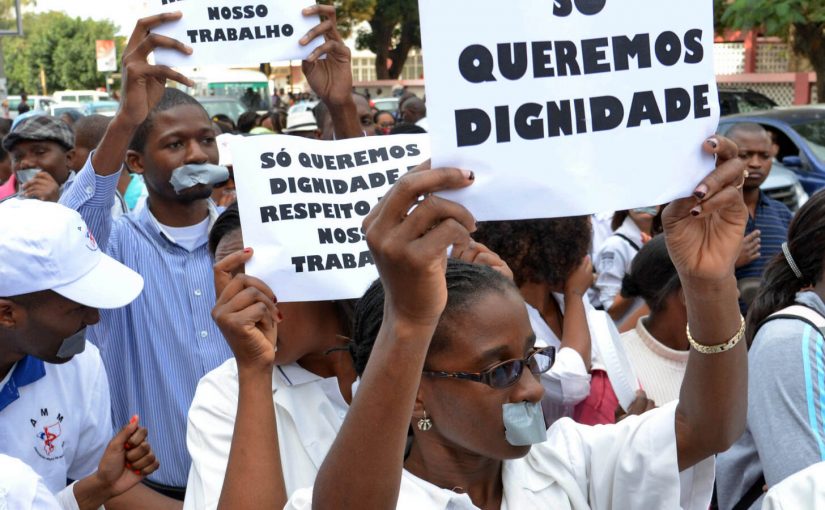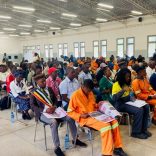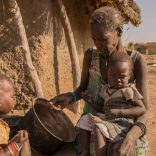Mozambique: ‘Já Chega’ initiative launches in Nampula province as over 24,000 acute ...
Mozambique: Healthcare workers extend strike for another 30 days

FILE - For illustration purposes only. [File photo: Lusa]
Mozambican health professionals have announced the extension of their strike for another 30 days starting this Monday, saying that the government has not yet paid overtime and shift allowances.
“[The strike] will be carried out again in phases, if the government intends to continue the standoff with the negotiating team,” reads a statement from the Association of United and Solidarity Health Professionals of Mozambique (APSUSM).
The strike by Mozambican health professionals began on April 17 and has now been extended for another 30 days due to a lack of agreement with the government, in the context of the ongoing dialogue.
APSUSM has been demanding for three years that the government provide hospitals with medicines they need – with the necessary drugs in some cases being purchased by the patients themselves – as well as that they purchase sufficient hospital beds.
Other demands include resolving the “food shortage”, equipping ambulances with emergency supplies and non-disposable personal protective equipment – the lack of which is “forcing employees to buy [it] out of their own pockets” – and paying overtime, in addition to demanding a better framework within the scope of the Single Salary Table (TSU).
In view of the lack of overtime payments and shift and risk allowances, APSUSM indicates in its statement that it will maintain compliance with a single schedule in which professionals will work only eight hours, starting from 7:00 am to 3:30 pm local time, with a 30-minute break and no work on weekends.
On May 12, International Nurses Day , President Daniel Chapo promised to continue investing in improving working conditions and recognizing the careers of health professionals.
“It is our conviction that caring for those who care is investing in human capital and ensuring the foundation for a healthier, more productive and prosperous nation,” President Chapo’s message reads.
On the same day, Mozambique’s health minister called for dialogue to stop strikes in the health sector, stating that the government is working to ensure better working conditions for nurses and other health professionals.
“There are many problems that have already been overcome and we are overcoming them, mainly through dialogue,” Ussene Isse declared. “We are open to dialogue, because I am aware that there are challenges in the sector, I do not deny this, but together we will overcome them. We are seeking consensus within the sector to resolve the class problem.”
The health sector has been facing strikes and stoppages called by APSUSM, an association that includes around 65,000 health professionals from different departments, for the past three years.
The Mozambican National Health System has also faced severe pressure in the last two years, caused by strikes by employees, called by the Mozambican Medical Association (AMM) to demand improvements in working conditions.
The country has a total of 1,778 health units, 107 of which are health posts, three are specialized hospitals, four are central hospitals, seven are general hospitals, seven are provincial hospitals, 22 are rural hospitals and 47 are district hospitals, according to the most recent data from the Ministry of Health.












Leave a Reply
Be the First to Comment!
You must be logged in to post a comment.
You must be logged in to post a comment.